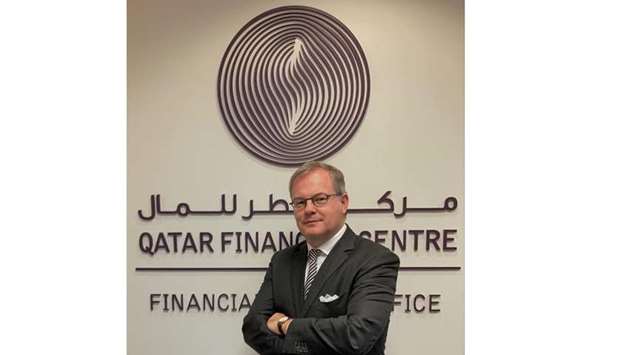Innovative and cutting-edge fintech ideas by startups and entrepreneurs in Qatar are playing a key role in cementing Qatar’s position as a leading fintech hub in the region and globally.
According to QFC managing director, Financial Sector Office, Henk Hoogendoorn, several new startups are providing innovating solutions to customers, citing Cwallet — Qatar’s newest fintech solutions provider and the country’s ‘first and only’ mobile application to facilitate banking via blockchain technology.
Hoogendoorn said Cwallet enables access to financial services, such as payroll, payments, and remittances, targeting the low-income, high-volume market comprising of Qatar's expat community, including migrant and domestic workers, and micro-entrepreneurs, and small and medium-sized businesses.
‘Cwallet officially went live in June 2020 and is now valued at more than $2mn, and has softly secured $200,000 of pre-seed round from an angel investor, as well as the original founders of Cwallet,’ Hoogendoorn said in a statement to Gulf Times.
Hoogendoorn stressed that Qatar is a leading financial hub in the Middle East and that it has been weaving Shariah-compliant blockchain technology to its existing financial and legal infrastructure through the sector’s emphasis on digital payments and lending, among others, to emerge as a regional fintech hub.
‘In addition, Qatar ranked high on ‘Ease of Doing Business’, as the country develops fintech-friendly policies, including launching its regulatory Sandbox. Furthermore, the demand for cashless and contactless payment has significantly increased after the outbreak of Covid-19, which led to the imposition of restrictions to limit the spread of coronavirus.
‘The rising demand for contactless payment in Qatar has created opportunities for growth for the fintech sector. The latest financial technology may be used to accept digital payments at the upcoming 2022 FIFA World Cup, instead of cash,’ he explained.
Hoogendoorn said the National FinTech Strategy, set by Qatar Central Bank (QCB), provides a framework for initiatives that enable the local startup sector and create a favourable ecosystem for international fintech’s to choose Qatar as their launchpad to the global market.
‘With that aim, QCB has partnered with Qatar Development Bank (QDB) and QFC to rollout Qatar FinTech Hub (QFTH) to stimulate the sector and rise to meet the evolving needs of the country,’ he said.
Since its establishment, Hoogendoorn said QFTH received an ‘overwhelming response’ from local entrepreneurs who were already looking for a similar programme to aid them in the development of the fintech industry.
‘Participating international fintechs were grateful that now there is a clear pathway for them to register their company in Qatar, and being introduced to key industry players within a couple of weeks, a process that without the Incubator and Accelerator Programmes would be very daunting.
‘Local entrepreneurs also benefited from getting introduced to other key fintech players in Qatar, and the services that are available, which in turn leads to extensive collaboration and partnership opportunities,’ he said.
Asked about the role of mentors in the QFTH programmes, Hoogendoorn said, ‘At QFTH, we seek to keep the mentors motivated to engage with fintechs by giving them the opportunity to select the fintechs they would like to work with rather than assign them directly.
‘Our local mentors, coming from distinct financial institutions, are able to support fintechs with local market knowledge and insights, in addition to providing them with networking opportunities, whereas our global mentors are able to help fintechs with technical advice and assist them with their overall product offering.’
He added: ‘The role of mentors does not end after the completion of the 12-week programme, it’s a longer-term relationship, which in several cases result in the mentor being an integral part of the fintech, its board of directors, or even play an advisory position.’


